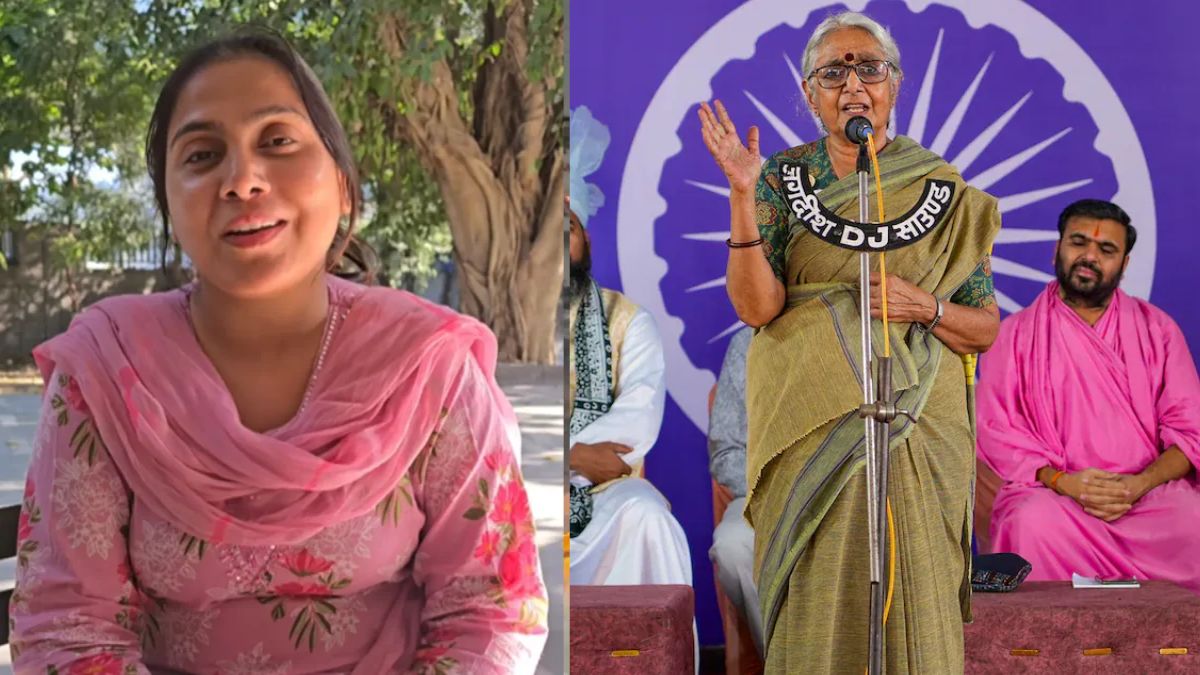The British Broadcasting Corporation (BBC) has unveiled its highly anticipated list of 100 inspiring and influential women for 2024, celebrating trailblazers who are shaping the world.
From climate to technology and sports, the prestigious list features women from diverse fields who are making a mark.
Among the honourees are three remarkable Indian women: Aruna Roy, Pooja Sharma, and Vinesh Phogat. The list also features women of Indian-American origin, including NASA astronaut Sunita Williams and 20-year-old AI expert Sneha Revanur.
But who are these extraordinary women, and what are their contributions? Here’s a closer look.
Pooja Sharma
Born on July 7, 1996, Pooja Sharma hails from a middle-class family in Delhi. She has gained recognition for her extraordinary mission, performing the last rites of over 4,000 unclaimed bodies in the national capital over the last few years.
Her journey into this unconventional role began with a personal tragedy. On 12 March 2022, Sharma lost her elder brother, who was brutally murdered after a minor argument. Left to handle the aftermath alone, she tied a turban on her head and performed his last rites herself when no one else stepped forward, as per the official website of the foundation she now leads.
This life-altering experience sparked her mission to ensure dignity in death for those abandoned in their final moments.
Despite facing resistance from priests and members of her community who argued that this role was traditionally reserved for men, Sharma has persisted, conducting the last rites for individuals from various faiths and religions.
Through her NGO, Bright The Soul Foundation, Sharma works to uplift marginalised communities. The organisation also focuses on environmental welfare, old-age care, supporting abandoned children, and promoting education. It provides essential items to those in need, free of charge.
Challenging societal norms has not been easy, but Sharma has found significant support on social media. With 3.50 lakh followers on Instagram, she regularly shares updates about her inspiring work, inspiring others to join her cause.
Aruna Roy
Social activist Aruna Roy has been recognised as one of BBC’s Women of the Year, celebrating her unwavering commitment to the rural communities across India.
With a career spanning over four decades, Roy is one of the most prominent activists in India, who is known for championing the rights of the marginalised and empowering grassroots communities.
A former IAS officer, Roy left her position to work directly in rural areas, addressing systemic challenges faced by the underprivileged.
In 1990, she co-founded the Mazdoor Kisan Shakti Sangathan (MKSS) in Rajasthan’s Devdungri district, along with a small group of like-minded individuals. This grassroots organisation sought to empower workers and farmers by advocating for fair wages, government accountability, and transparency.
The MKSS became a driving force in the campaign for public access to information, eventually leading to the birth of the Right to Information (RTI) movement in India. The RTI Act became the first national legislation born out of a people’s campaign, with MKSS playing a pivotal role in its conceptualisation, drafting, and enactment.
Roy also contributed to transformative national legislation during her tenure on India’s National Advisory Council. Her work includes the Mahatma Gandhi National Rural Employment Guarantee Act (MGNREGA), which provides rural households with a legal guarantee of employment, enhancing economic security and social equity.
Aruna Roy’s remarkable contributions have earned her numerous accolades, including the prestigious Ramon Magsaysay Award for Community Leadership in 2000. In 2011, she was named one of TIME magazine’s 100 Most Influential People in the World.
Other honours include the Nani Palkhivala Award and the Lal Bahadur Shastri National Award for Excellence in Public Administration, Academia, and Management in 2010.
Roy continues her work as the president of the National Federation of Indian Women (NFIW), steadfast in her mission to bring social justice and equality to all.
Vinesh Phogat
Vinesh Phogat, a three-time Olympian and one of India’s most recognised wrestlers has been named one of BBC’s Women of the Year.
Earlier this year, she made history this year by becoming the first female wrestler from India to reach an Olympic final. However, the wrestler faced disqualification due to a weight issue. Following this, she retired from sports and transitioned into politics.
Phogat is also a vocal advocate against sexism in sports. She earlier led a high-profile protest of Indian wrestlers against their federation chief, Brij Bhushan Sharan Singh, who was accused of sexually harassing female athletes.
Sunita Williams
Indian-American astronaut Sunita Williams has been honoured as one of BBC’s 100 inspiring and influential women of 2024.
Williams has had a trailblazing career, including her achievements as a retired Navy helicopter pilot, a former record holder for the most spacewalks by a woman, and the first person to complete a marathon in space in 2007.
This year, she embarked on a mission to the International Space Station (ISS) aboard the Boeing Starliner spacecraft on 5 June 2024, originally planned to last eight days. However, due to technical challenges, her stay was extended to eight months, and she is now expected to return to Earth in February 2025.
Also read: 60 days and counting: Why Sunita Williams might not return to Earth until next year
Sneha Revanur
Sneha Revanur, an Indian-American activist, is making a significant impact in the field of artificial intelligence (AI).
At just 20 years old, the Stanford University student is the founder of Encode Justice, a global youth movement advocating for safe and equitable AI. The organisation has mobilised over 1,300 members across 30 countries, driving meaningful change in the world of AI.
Her efforts have garnered widespread recognition, including being named the youngest individual on TIME magazine’s inaugural list of the 100 most influential voices in AI.
With input from agencies


)

)
)
)
)
)
)
)
)



